Search
Food Safety, Inspection and Control BSc (Hons)
Study level: Undergraduate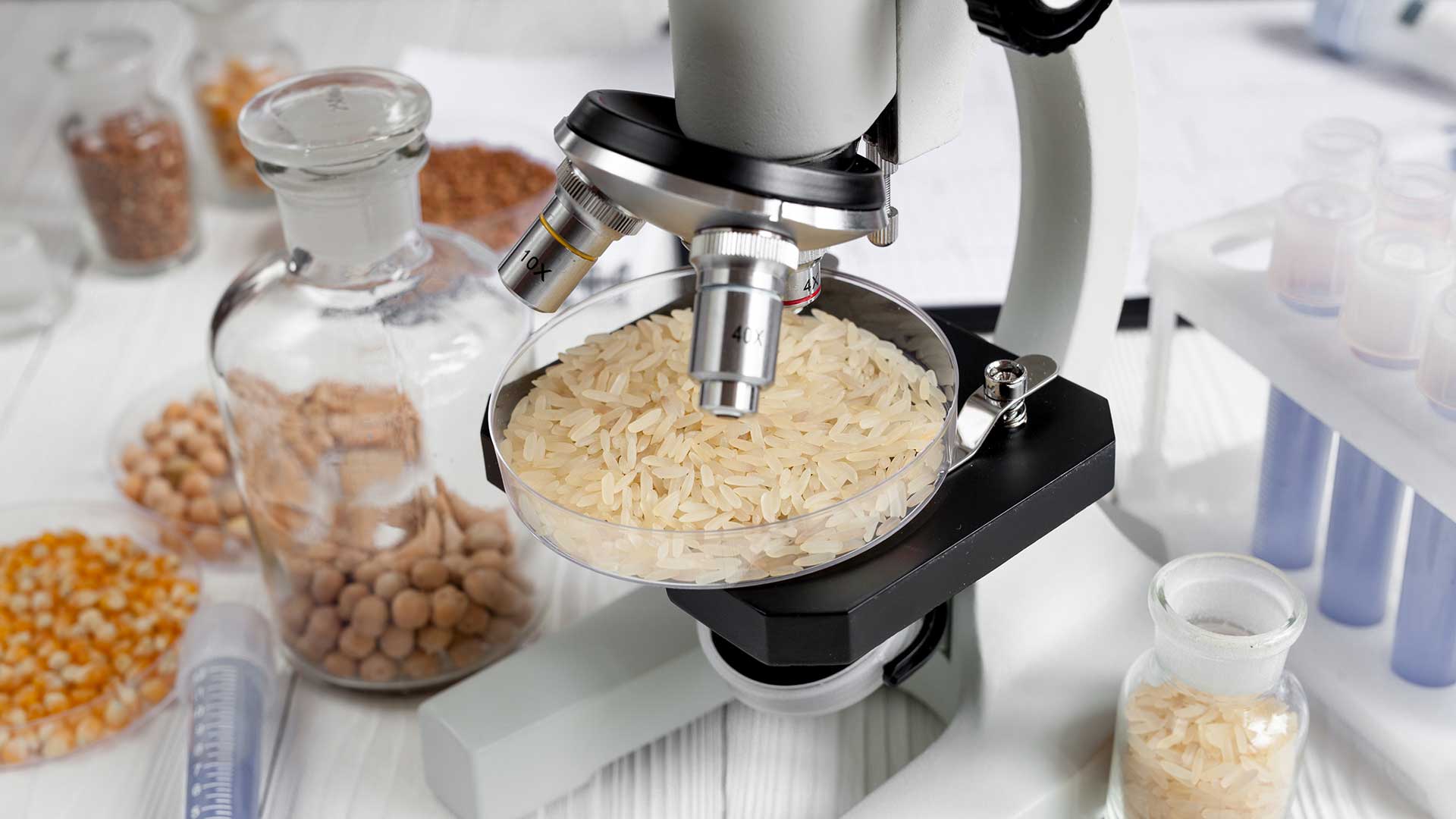
This course has been designed for people who have a passion for food safety, inspection, regulation and global food developments and want to make a difference to the quality of the food we eat.
Course features
Year of entry
Location
Coventry University (Coventry)
Study mode
Full-time
Sandwich
Duration
3 years full-time
4 years sandwich
Course code
D600
Start date
September 2025
The information on this page is for 2024-25 entry and should be used as guidance for 2025-26 entry. Please keep checking back on this course page to see our latest updates.
Course overview
The Food Safety, Inspection and Control BSc (Hons) encompasses a variety of food issues with both a UK and international focus.
Designed to meet the needs of the food industry and regulatory agencies, it covers skills including how to assess food safety risks, advise on food hygiene and safety, inspect food and food premises, and understand and apply legislation relating to food. Successful students will:
- Meet the academic requirements of the Chartered Institute of Environmental Health (CIEH) syllabus towards the completion of the Higher Certificate in Food Control (HCFC).
- Be competent in the analysis, interpretation and presentation of scientific data.
- Develop as graduates with the skills and capabilities to inspect food and food premises and recommend actions and legal enforcement measures.
Joint Top Modern University for Career Prospects
Guardian University Guide 2021 and 20225 QS Stars for Teaching and Facilities
QS Stars University RatingsTop 5 UK Student City (Coventry)
QS Best Student Cities Index 2023Why you should study this course
- No.7 for Food Science in The Complete University Guide 2023.
- This course incorporates the academic content of the Higher Certificate of Food Control, the baseline qualification for food hygiene and standards, official controls and the inspection of food premises within the UK.
- We use simulation to develop the skills you will need in industry, for example preparing and presenting a court prosecution case.
- Expert staff and guest lecturers who have or are working practitioners bring the subjects to life using real life examples and scenarios. Our current industry and local authority experienced teaching staff aim to bring a range of professional and research experience to their teaching. Having worked as food scientists, public and environmental health professionals and nutritionists for both governmental and local councils as well as working in the food industry, they maintain links with major external organisations to ensure you receive up-to-date information and help you begin to establish your professional networks. We have also welcomed highly specialised guest lecturers2 from areas such as Animal Health Protection Agency, Port Health Authorities and pest control.
- Our multi-million-pound Alison Gingell Building features a suite of analytical and biological laboratories where you can gain hands-on experience in food safety, inspection and analytical techniques4.
Accreditation and professional recognition
This course is accredited1 and recognised by the following bodies:
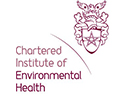
Chartered Institute of Environmental Health (CIEH)
Eligibility for membership of the CIEH upon successful completion of the Higher Certificate in Food Control academic content, Competency Development Portfolio and professional discussion. Additional costs may apply. Please check with the membership body CIEH for details. Affiliate membership of the CIEH is available for students during their study.
I’ve found this course very interesting because I can have a lot of hands-on experience.
Cheuk In Samantha Chan, Food Safety, Inspection and Control BSc (Hons) current student, 2021
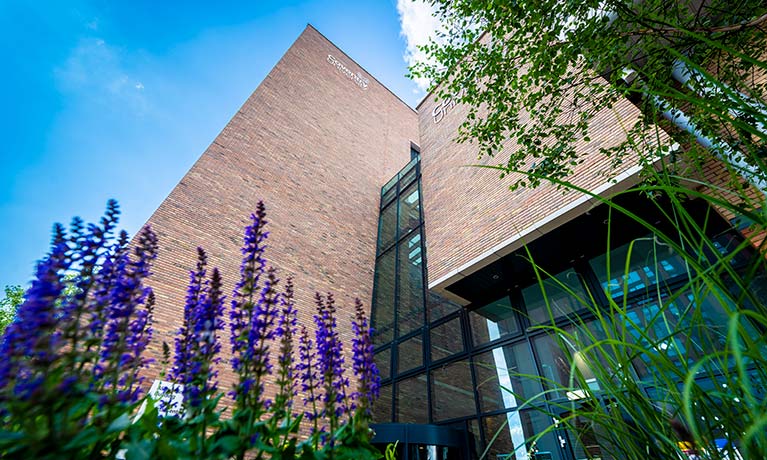
What you'll study
This course has a common first year.
The common first year enables you to work alongside students doing similar courses to you, to widen your knowledge and exposure to other subject areas and professions. You will have the opportunity to collaborate with other students, so you can share your insights and experience which will help you to develop and learn.
If you discover an interest in a specific subject you have studied, upon successful completion of your first year, you could swap degrees with another course in your common first year (subject to meeting progression requirements).
Common first year courses
- Food Safety, Inspection and Control BSc (Hons)
- Food Science BSc (Hons)
- Nutrition and Health BSc (Hons)
We regularly review our course content, to make it relevant and current for the benefit of our students. For these reasons, course modules may be updated.
How you'll learn
The course utilises a variety of teaching methods, including lectures, seminars, tutorials, group work and practical skills sessions in the maintenance and improvement of food quality and safety, for example, food microbiology laboratory sessions, food processing sessions and practical kitchen inspections. These will be taught in our SuperLab4 and in the kitchen, where you can work with a range of ingredients and use food processing equipment. We also incorporate the use of specific nutrition-based software, such as Nutritics and shelf-life assessment software such as ComBase.
Formative and summative assessments provide you with feedback to ensure that you are supported in your learning. A teaching and learning approach including asynchronous materials, online synchronous and face to face sessions will delivered via the virtual learning environment.
Teaching contact hours
Depending on the year of study you will typically have been 9 - 18 hours of structured weekly teaching and learning hours which may include activities such as workshops, laboratories, online tutorials, seminars and lectures. This will be supported by a weekly course programme hour with your tutors. In addition, you will be expected to undertake around 18 hours of self-directed study each week.
As an innovative and enterprising institution, the university may seek to utilise emerging technologies within the student experience. For all courses (whether on-campus, blended, or distance learning), the university may deliver certain contact hours and assessments via online technologies and methods.
In response to the COVID-19 pandemic, we are prepared for courses due to start in or after the 2023/2024 academic year to be delivered in a variety of forms. The form of delivery will be determined in accordance with Government and Public Health guidance. Whether on campus or online, our key priority is staff and student safety.
Assessment
This course will be assessed using a variety of methods which will vary depending upon the module.
Assessment methods include:
- Tests
- Essays
- Group work
- Presentations
- Reports
- Projects
- Coursework
- Individual assignments
The Coventry University Group assessment strategy ensures that our courses are fairly assessed and allows us to monitor student progression towards achieving the intended learning outcomes.
International experience opportunities
Food safety practice takes place in higher education institutions, regulatory bodies and industry throughout the world. This international perspective is reflected in a number of modules on the course, which deal with issues of global importance, such as epidemiology and food borne illness, food fraud, food inspection and global food security and sustainability.
There may also be opportunities for you to apply to spend your optional enhancement year in an international setting2. In addition, there are may also be opportunities to attend an international food safety conference2. The course may also provide the opportunities for online collaboration with overseas institutions on a joint problem-based learning assignment (subject to availability).
Throughout my three years at Coventry my tutors have been very supportive and encouraged me to achieve my best work. The course has included some brilliant guest lecturers and it has been a privilege to meet and learn from some giants of industry. The Alison Gingell Building has cutting edge facilities and is a great place to study or just hang out with fellow students. Coventry has an amazing library that runs lots of support sessions to underpin your learning and there is a huge amount of online material available to access.
Barbra Will, Food Safety, Inspection and Control BSc (Hons) student, quoted in 2022

Entry requirements
Typical offer for 2024/25 entry.
Fees and funding
| Student | Full-time | Part-time |
|---|---|---|
| UK, Ireland*, Channel Islands or Isle of Man | 2025/26 fees TBC 2024/25 fees - £9,250 per year |
Not available |
| EU | 2025/26 fees TBC 2024/25 fees - £9,250 per year with EU Support Bursary** 2025/26 fees TBC 2024/25 fees - £18,300 per year without EU Support Bursary** |
Not available |
| International | 2025/26 fees TBC 2024/25 fees - £18,300 per year |
Not available |
If you choose to study this course with a professional placement2 or study abroad year, you will need to pay a tuition fee3 of £1,250 to cover your academic support throughout your placement year.
For advice and guidance on tuition fees and student loans visit our Undergraduate Finance page and see the university’s Tuition Fee and Refund Terms and Conditions.
The university will charge the tuition fees that are stated in the above table for the first Academic Year of study. The university will review tuition fees each year. For UK (home) students, if Parliament permits an increase in tuition fees, the university may increase fees for each subsequent year of study in line with any such changes. Note that any increase is expected to be in line with inflation.
For international students, we may increase fees each year, but such increases will be no more than 5% above inflation. If you defer your course start date or have to extend your studies beyond the normal duration of the course (e.g. to repeat a year or resit examinations) the university reserves the right to charge you fees at a higher rate and/or in accordance with any legislative changes during the additional period of study.
We offer a range of International scholarships to students all over the world. For more information, visit our International Scholarships page.
Tuition fees cover the cost of your teaching, assessments, facilities and support services. There may be additional costs not covered by this fee such as accommodation and living costs, recommended reading books, stationery, printing and re-assessments should you need them.
The following are additional costs not included in the tuition fees:
- Any optional overseas field trips or visits: £400+ per trip.
- Any costs associated with securing, attending or completing a placement (whether in the UK or abroad).
Find out what's included in your tuition costs.
*Irish student fees
The rights of Irish residents to study in the UK are preserved under the Common Travel Area arrangement. If you are an Irish student and meet the residency criteria, you can study in England, pay the same level of tuition fees as English students and utilise the Tuition Fee Loan.
**EU Support Bursary
Following the UK's exit from the European Union, we are offering financial support to all eligible EU students who wish to study an undergraduate or a postgraduate degree with us full-time. This bursary will be used to offset the cost of your tuition fees to bring them in line with that of UK students. Students studying a degree with a foundation year with us are not eligible for the bursary.
Facilities
This course is taught at the Coventry University campus, primarily in the Alison Gingell building4.
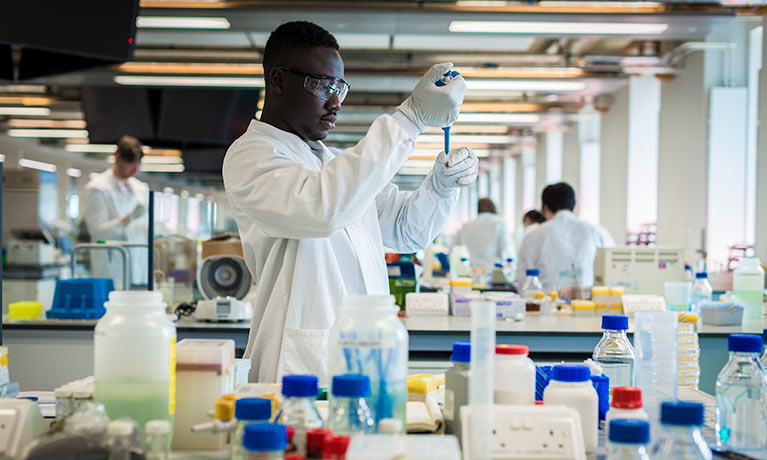
SuperLab
Our state-of-the-art SuperLab can hold up to 250 students at one time and has facilities for cell and microbial culture and equipment for microscopy, DNA, RNA and protein extraction and analysis.
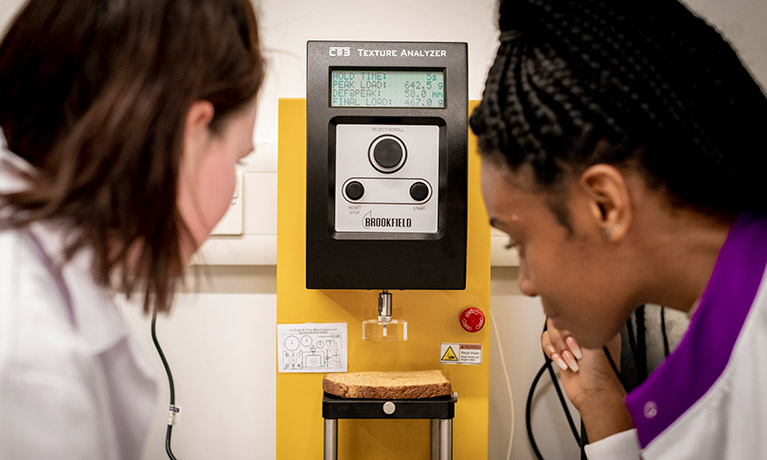
Analytical Chemistry Suite
The Analytical Chemistry Suite is a dedicated space for chemistry-based teaching. Students can complete ‘wet’ chemistry and preparatory work, complemented by a comprehensive suite of analytical equipment which includes ICP-OES, uHPLC, HPLC, Fluorescence Spectrometers, UV Spectrometers, GC, and GC-MS.
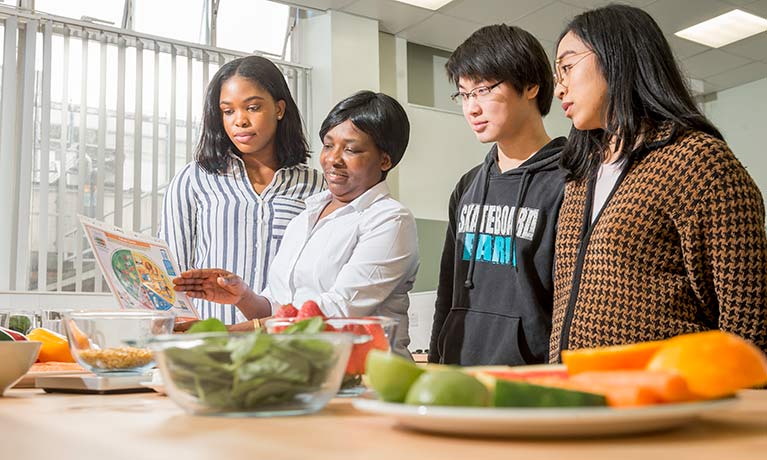
Kitchen facilities
You will use the kitchens for a variety of tasks where you develop understanding of food processing relevant to industry and local authority food inspection, including how risks are controlled, such as sous vide, investigating gas analysis of modified atmosphere packed products, and conducting a mock kitchen inspection.
Careers and opportunities
This course is designed to meet the needs of the food industry and regulatory agencies by covering skills including how to assess food safety risks, advise on food hygiene and safety, inspect food and food premises, and understand and apply legislation relating to food.
We aim to share knowledge about how technologies will aid the food quality assurance process, and the problems of maintaining a sustainable global food chain. In addition, there will be opportunities for you to develop skills in problem solving, teamwork and effective communication that may be applicable to non-discipline specific graduate career routes. This must be supplemented with a Competency Development Portfolio (which may be completed during an appropriate placement year2 or after graduation) and professional discussion to meet the requirements of the CIEH (additional costs may apply).
Coventry University is committed to preparing you for your future career and aims to give you a competitive edge in the graduate job market. The university's Talent Team provide a range of support services to help you plan and prepare for your career.
Where our graduates work
There are a wide range of food safety management and technical management roles that are available to students within the food industry as well as local authority or government bodies such as the Food Standards Agency (FSA).
Graduates of this course have the opportunity to work in a range of environments related to food control, either in ensuring safety standards or enforcement.
I did a placement, which allowed me to further my education. I think it’s important to further your confidence in a competitive environment.
William Tutt, current Food Safety, Inspection and Control BSc (Hons) student, quoted in 2021
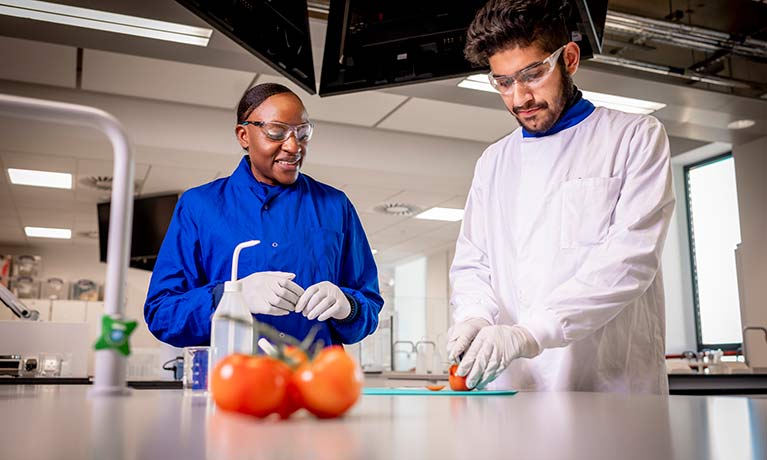
Graduate Immigration Route visa
Based on current information from the UK Government, international students whose study extends beyond summer 2021 may be eligible for a visa under the UK Government’s Graduate Immigration Route, which will enable students to stay and work, or look for work, in the UK at any skill level for up to two (2) years. Check the most up to date guidance available to check your eligibility and any updates from the UK Government before making an application or enrolment decision.
How to apply
You may also like

Food Science BSc (Hons)

Nutrition and Health BSc (Hons)




